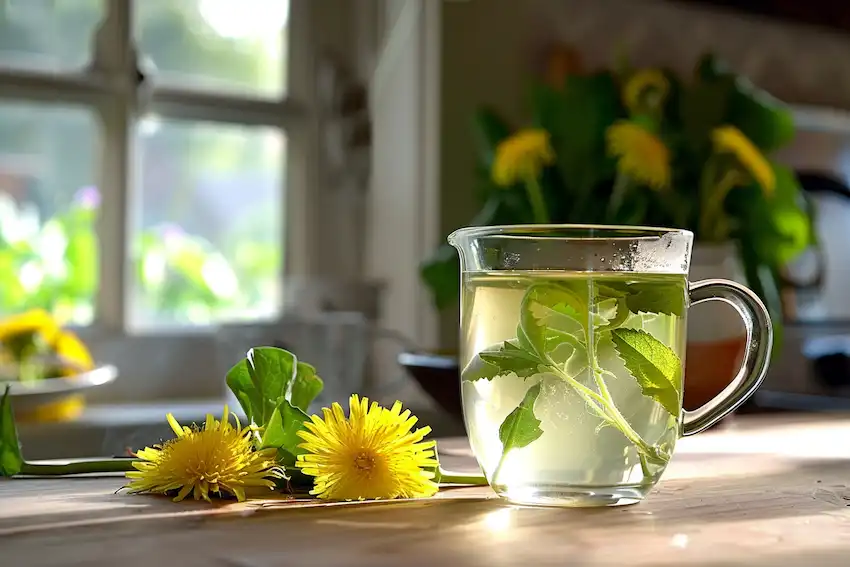Dandelion leaf, often overlooked as a simple garden weed, holds a treasure trove of health benefits that have been recognized for centuries across various cultures. Taraxacum officinale, the botanical name for dandelion, translates to “official remedy for disorders” in Latin, signifying its esteemed place in herbal medicine. This comprehensive article explores the myriad health benefits of dandelion leaf, outlines potential side effects, and provides a simple recipe to incorporate this powerhouse plant into your wellness routine.
Health Benefits of Dandelion Leaf
Rich in Nutrients:
Dandelion leaves are a powerhouse of vitamins A, C, and K, and minerals such as calcium, potassium, iron, and magnesium. They offer more vitamin A than spinach and more vitamin C than tomatoes, making them an excellent addition to any diet.
Detoxification and Liver Health:
Traditionally used to support liver function, dandelion leaves contain potent antioxidants that help detoxify the liver, aid in bile production, and reduce inflammation.
Natural Diuretic:
Dandelion leaves act as a natural diuretic, promoting kidney function and increasing urine production. This helps in flushing out toxins, salts, and excess water from the body, supporting urinary tract health.
Blood Sugar Management:
Some studies suggest that dandelion can help regulate blood sugar levels due to its bioactive compounds. Its diuretic effect also plays a role in managing diabetes.
Reducing Inflammation:
The leaves contain several bioactive compounds like polyphenols that have anti-inflammatory properties, beneficial in reducing inflammation throughout the body.
Supporting Digestive Health:
Dandelion leaves are rich in fiber, which is crucial for healthy digestion. They can stimulate appetite and soothe digestive ailments.
Potential Side Effects
While dandelion leaves are generally safe for most people, some may experience side effects due to allergies or sensitivities. These can include:
- Allergic Reactions: Some individuals may experience allergic reactions, especially those who are allergic to related plants like ragweed, chrysanthemums, marigolds, and daisies.
- Stomach Discomfort: In rare cases, consuming dandelion leaves can lead to stomach discomfort or diarrhea.
- Interaction with Medications: Dandelion leaves may interact with certain medications, including diuretics, antibiotics, and medications for blood sugar control. It’s advisable to consult with a healthcare provider before adding dandelion leaves to your diet if you are on medication.
Simple Recipe: Dandelion Leaf Salad
Ingredients:
– 2 cups of fresh dandelion leaves, washed and chopped
– 1 cup of cherry tomatoes, halved
– 1 cucumber, sliced
– 1/4 red onion, thinly sliced
– 1/4 cup feta cheese, crumbled
– 1/4 cup walnuts, toasted
– 2 tablespoons olive oil
– 1 tablespoon lemon juice
– Salt and pepper to taste
Instructions:
1. In a large bowl, combine the dandelion leaves, cherry tomatoes, cucumber, red onion, feta cheese, and walnuts.
2. In a small bowl, whisk together the olive oil, lemon juice, salt, and pepper.
3. Drizzle the dressing over the salad and toss gently to combine.
4. Serve immediately and enjoy the fresh, tangy flavors of this nutritious salad.
Incorporating dandelion leaves into your diet can provide a wealth of health benefits, from liver support and detoxification to improved digestion and reduced inflammation. With their rich nutrient profile and versatility in recipes, dandelion leaves are a valuable addition to a health-conscious lifestyle.
